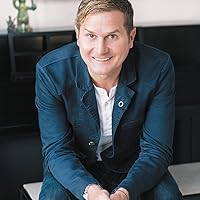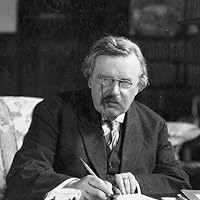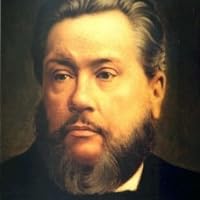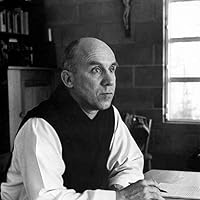Religion Christianity Quotes
Quotes tagged as "religion-christianity"
Showing 1-30 of 189

“Jesus is bigger than any one religion. He didn't come to start a new religion, and he continually disrupted whatever conventions or systems or establishments that existed in his day. He will always transcend whatever cages and labels are created to contain and name him, especially the one called "Christianity.”
―
―
“You start to live when you commit your life to cause higher than yourself. You must learn to depend on divine power for the fulfillment of a higher calling.”
―
―

“You know, we can quote the written Word all day to our friends, but nothing will touch them like our own hunger and love for the Word himself. It is not dutiful love that attracts but love freely lavished from a heart familiar with the gardens of heaven.”
― This Beloved Road: A Journey of Revelation and Worship
― This Beloved Road: A Journey of Revelation and Worship

“Ingatlah, ketika Saudara diusir oleh orang pada saat memberitakan Injil, ada pahala untuk anda di sorga. Bagaimanapun kita dianiaya, dipermalukan, diusir, semua itu hanya membuktikan bahwa kita adalah murid Tuhan Yesus. Makin dianiaya, iman menjadi semakin teguh.”
―
―

“I wondered if suicide
is the unforgivable sin,
Because by taking control
and beating God at His own game,
He still makes sure,
that you never win.”
― 88
is the unforgivable sin,
Because by taking control
and beating God at His own game,
He still makes sure,
that you never win.”
― 88

“Sexuality is more a symptom of your life's condition than a cause, more a consequence than an origin.”
―
―

“The assumption of no God cannot be proven by science." - Scientific Faith
"Under the Thelián Sky: Beyond the Great Unknown" (c) 2012”
―
"Under the Thelián Sky: Beyond the Great Unknown" (c) 2012”
―

“We are all born free from all religious affiliations and only come to believe in such things after being introduced to it ― so, atheism is the default position. Although some children are not indoctrinated with a specific religion before the age of reason, there are many more who are.”
― Mom, Dad, I'm an Atheist: The Guide to Coming Out as a Non-Believer
― Mom, Dad, I'm an Atheist: The Guide to Coming Out as a Non-Believer

“Our religion might preach love, but it was based on purity. God was holy and pure; therefore we must be holy and pure. But here was a poor mamzer saying God is love; therefore we must be love.”
― The Book of Longings
― The Book of Longings
“The knowledge of Good and Evil, no matter how systematically or thoroughly consumed, will by no means make us gods. Rather, modern ethics, modern psychotherapy, and modern political ideologies all tend to produce not superhumans but pitiable slaves to the rationalizations generated by our distorted human desires. In order to gain control over the world, we have been too willing to renounce essential aspects of our own freedom.”
― The Ethics of Beauty
― The Ethics of Beauty

“You may die - now, or later; with the rest of us or alone, separated from everyone. You will have no church, no mass, no priest at your side. But I now think that none of that is needed. You have what is needed: you have Jesus Christ."
"Yes," said Jozef firmly, as if answering the most important catechism of his life. "I am resting in the blood of Jesus Christ my Saviour. I do not fear death, Waclaw.”
― Treasures of Darkness
"Yes," said Jozef firmly, as if answering the most important catechism of his life. "I am resting in the blood of Jesus Christ my Saviour. I do not fear death, Waclaw.”
― Treasures of Darkness
“Again, [amen,] I say to you, if two of you agree on earth about anything for which they are to pray, it shall be granted to them by my heavenly Father. For where two or three are gathered together in my name, there am I in the midst of them.”
(Matthew 18:19-20)”
―
(Matthew 18:19-20)”
―

“The greatest crime of which the Roman Emperors were accused is that they had Christians thrown to the lions; but that does not exceed in horror what the Christians did to one another.”
― The Devil and All His Works
― The Devil and All His Works

“We know better
than the scholars, even those of us who are no scholars, what was in
that hollow cry that went forth over the dead Adonis and why the Great
Mother had a daughter wedded to death. We have entered more deeply than
they into the Eleusinian Mysteries and have passed a higher grade, where
gate within gate guarded the wisdom of Orpheus. We know the meaning of
all the myths. We know the last secret revealed to the perfect initiate.
And it is not the voice of a priest or a prophet saying 'These things
are.' It is the voice of a dreamer and an idealist crying, 'Why cannot
these things be?”
― The Everlasting Man
than the scholars, even those of us who are no scholars, what was in
that hollow cry that went forth over the dead Adonis and why the Great
Mother had a daughter wedded to death. We have entered more deeply than
they into the Eleusinian Mysteries and have passed a higher grade, where
gate within gate guarded the wisdom of Orpheus. We know the meaning of
all the myths. We know the last secret revealed to the perfect initiate.
And it is not the voice of a priest or a prophet saying 'These things
are.' It is the voice of a dreamer and an idealist crying, 'Why cannot
these things be?”
― The Everlasting Man

“What is the kind of religion Jesus opposed? Any religion that is proud of its virtue, like the boastful Pharisee. Any that is self-righteous, quick to judge and condemn, ready to impose burdens rather than share or lift them. Any that exalts its own officers, proud of its trappings, building expensive monuments to itself. Any that neglects the poor and cultivates the rich, any that scorns outcasts and flatters the rulers of this world. If that sounds like just about every form of religion we know, then we can see how far off from religion Jesus stood.”
― What Jesus Meant
― What Jesus Meant

“There never has been a period of history, in which the Common Law did not recognize Christianity as lying at its foundation. U.S. Supreme Court Justice Joseph Story:
1829 speech at Harvard.”
― Life and Letters of Joseph Story
1829 speech at Harvard.”
― Life and Letters of Joseph Story

“Oh it cannot be denied that in the monastery he believed completely in miracles, but in my experience miracles never bother a realist. It is not miracles that incline a realist towards faith. The true realist, if he is not a believer, will invariably find within himself the strength and the ability not to believe in miracles either, and if a miracle stands before him as a incontrovertible fact, he will sooner disbelieve his senses than admit that fact. And even if he does admit it, it will be as a fact of nature, but one that until now has been obscure to him. In the realist it is not faith that is born of miracles, but miracles of faith. Once a realist believes, his realism inexorably compels him to admit miracles too. The Apostle Thomas declared that he would not belive until he saw, and when he saw, said: 'mMy Lord and my God.' Was it the miracle that had made him believe? The likeliest explanation is that it was not, and that he came to believe for the sole reason that he wanted to believe and, perhaps, in the inmost corners of his being already fully believed, even when he said: 'Except I shall see... I will not believe.' [John 20:25]”
― The Brothers Karamazov
― The Brothers Karamazov

“Oh it cannot be denied that in the monastery he believed completely in miracles, but in my experience miracles never bother a realist. It is not miracles that incline a realist towards faith. The true realist, if he is not a believer, will invariably find within himself the strength and the ability not to believe in miracles either, and if a miracle stands before him as a incontrovertible fact, he will sooner disbelieve his senses than admit that fact. And even if he does admit it, it will be as a fact of nature, but one that until now has been obscure to him. In the realist it is not faith that is born of miracles, but miracles of faith. Once a realist believes, his realism inexorably compels him to admit miracles too. The Apostle Thomas declared that he would not belive until he saw, and when he saw, said: 'My Lord and my God.' Was it the miracle that had made him believe? The likeliest explanation is that it was not, and that he came to believe for the sole reason that he wanted to believe and, perhaps, in the inmost corners of his being already fully believed, even when he said: 'Except I shall see... I will not believe.' [John 20:25]”
― The Brothers Karamazov
― The Brothers Karamazov
“Trump continued, "I asked Paula {White} to invite some of her friends here that she believes are in contact with God, so that you guys can pray for me that God gives me the wisdom to make the right decision as to whether I run [for President} or not.”
― Nothing to Lose: Unlikely Allies in the Struggle for a Better Black America
― Nothing to Lose: Unlikely Allies in the Struggle for a Better Black America

“Când cineva își mărginește la atâta apărarea, și când are de-a face cu oameni care nu se dau îndărăt de la nimic în atacul lor, care calcă în picioare și ce-i drept, și ce nu e, care recunosc și neagă cu aceeași neobrăzare și nu roșesc nici de mustrări, nici de bănuieli, nici de clevetiri, nici de bârfeli, e greu să biruie, mai ales la tribunale, unde obișnuința și plictiseala împiedică să fie cercetate ca lumea cazurile mai însemnate, și unde un protest ca al meu e întotdeauna privit cu ochi răi de politicianul care se teme că izbânda unei călugărițe care își cere dezlegarea legământului ar atrage nenumărate altele pe aceeași cale; el simte, în taină, că de s-ar îndura să doboare, măcar pentru o singură nenorocită, porțile acestor temnițe, mulțimea s-ar repezi să le dărâme. De asta tribunalul are grijă să ne descurajeze, să ne împace pe toate cu soarta, nimicindu-ne nădejdea că am putea-o schimba. Mi se pare, totuși, că într-un stat condus ca lumea ar trebui să fie tocmai dimpotrivă: să intri greu în mânăstire și să poți să ieși ușor. Și de ce nu s-ar adăuga și un astfel de caz la atâtea altele, în care lipsa unei formalități neînsemnate nimicește procedura, chiar când altminteri e justă?
Mânăstirile sunt ele oare atât de trebuincioase pentru treburile unui stat? A făcut Isus Cristos călugări și călugărițe? Biserica nu se poate cu niciun chip lipsi de ei? Ce nevoie are mirele sfânt de atâtea fecioare nebune? Și ce nevoie are neamul omenesc de atâtea victime? Oare nu se va simți niciodată trebuința de a strâmta gura acestor prăpăstii, în care neamurile viitoare se vor pierde? Toate rugăciunile făcute din obișnuință acolo prețuiesc oare cât gologanul dat din milostenie unui sărac? Și e oare voia lui Dumnezeu să vadă trăind în sihăstrie omul pe care l-a menit să trăiască laolaltă cu semenii săi? (...)
Și toate slujbele acestea lugubre care se țin la luarea vălului sau la mărturie, când un bărbat sau o femeie sunt dăruiți vieții monahale și nenorocii, curmă oare funcțiunile animalice ale omului? Nu se trezesc ele, dimpotrivă, în silnicie și trândăvie, cu o putere necunoscută celor ce trăiesc în afara mânăstirilor și care își găsesc sumedenie de distracții? Unde oare, în afară de mânăstiri, poți vedea vedea plictiseala adâncă, paliditatea, slăbiciunea, toate semnele astea ale naturii care tânjește și piere? (...) Unde, în afară de mânăstiri, se mai întâmplă ca natura, răzvrătindu-se împotriva unei cazne pentru care nu e făcută, să cadă pradă furiilor și să ducă animalul din om la o tulburare fără leac? În care colț al lumii mâhnirea și supărarea au nimicit toate calitățile sociale? (...)
Și unde oare e lăcașul urii, al scârbei și al smintelii? Unde e locul slugărniciei și al despotismului? Unde nu se sting niciodată dușmăniile? Unde clocesc clocesc, în tăcere, patimile?”
― La religieuse
Mânăstirile sunt ele oare atât de trebuincioase pentru treburile unui stat? A făcut Isus Cristos călugări și călugărițe? Biserica nu se poate cu niciun chip lipsi de ei? Ce nevoie are mirele sfânt de atâtea fecioare nebune? Și ce nevoie are neamul omenesc de atâtea victime? Oare nu se va simți niciodată trebuința de a strâmta gura acestor prăpăstii, în care neamurile viitoare se vor pierde? Toate rugăciunile făcute din obișnuință acolo prețuiesc oare cât gologanul dat din milostenie unui sărac? Și e oare voia lui Dumnezeu să vadă trăind în sihăstrie omul pe care l-a menit să trăiască laolaltă cu semenii săi? (...)
Și toate slujbele acestea lugubre care se țin la luarea vălului sau la mărturie, când un bărbat sau o femeie sunt dăruiți vieții monahale și nenorocii, curmă oare funcțiunile animalice ale omului? Nu se trezesc ele, dimpotrivă, în silnicie și trândăvie, cu o putere necunoscută celor ce trăiesc în afara mânăstirilor și care își găsesc sumedenie de distracții? Unde oare, în afară de mânăstiri, poți vedea vedea plictiseala adâncă, paliditatea, slăbiciunea, toate semnele astea ale naturii care tânjește și piere? (...) Unde, în afară de mânăstiri, se mai întâmplă ca natura, răzvrătindu-se împotriva unei cazne pentru care nu e făcută, să cadă pradă furiilor și să ducă animalul din om la o tulburare fără leac? În care colț al lumii mâhnirea și supărarea au nimicit toate calitățile sociale? (...)
Și unde oare e lăcașul urii, al scârbei și al smintelii? Unde e locul slugărniciei și al despotismului? Unde nu se sting niciodată dușmăniile? Unde clocesc clocesc, în tăcere, patimile?”
― La religieuse

“But, in the early morning sunlight, dressed in their white gowns, the possibility of sin seemed to have been extinguished. Their sins were expunged. Major catastrophes like cheating on your wife and leaving your family, could no longer happen, would no longer happen.
But, of course, they did, and they do.”
―
But, of course, they did, and they do.”
―

“Religion is a nasty word, literally. The word comes from the Latin 'religare,' which means 'to bind'.”
― Kingdom Fundamentals: What the Kingdom of God Means and What it Means for You | A Thorough and Biblical Exposition of the Kingdom of Heaven as Preached by Jesus
― Kingdom Fundamentals: What the Kingdom of God Means and What it Means for You | A Thorough and Biblical Exposition of the Kingdom of Heaven as Preached by Jesus

“There seems to me to have been twice as much done in some ages in defending the Bible as in expounding it, but if the whole of our strength shall henceforth go to the exposition and spreading of it, we may leave it pretty much to defend itself. I do not know whether you see that lion—it is very distinctly before my eyes; a number of persons advance to attack him, while a host of us would defend the grand old monarch, the British Lion, with all our strength. Many suggestions are made and much advice is offered. This weapon is recommended, and the other. Pardon me if I offer a quiet suggestion. Open the door and let the lion out; he will take care of himself. Why, they are gone! He no sooner goes forth in his strength than his assailants flee. The way to meet infidelity is to spread the Bible. The answer to every objection against the Bible is the Bible.”
―
―

“In those days I learned the name Hesperides, and it was from these things that I unconsciously built up the vague fragments of a religion and of a philosophy, which remained hidden and implicit in my acts, and which, in due time, were to assert themselves in a deep and all-embracing attachment to my own judgment and my own will and a constant turning away from subjection, towards the freedom of my own ever-changing horizons.”
― The Seven Storey Mountain
― The Seven Storey Mountain

“Adhering to the fifth commandment, and the Catechism of the Catholic Church (“From its conception, the child has the right to life. Direct abortion, that is, abortion willed as an end or as a means, is a ‘criminal' practice (GS 27 #3), gravely contrary to the moral law, the Church imposes the canonical penalty of excommunication for this crime against human life.” n. 2322), I have always spoken out in my ministry as a Catholic priest and bishop against abortion. (Letter to Stefanno Gennarini)”
―
―

“I understood that every flower created by Him is beautiful, that the brilliance of the rose and the whiteness of the lily do not lessen the perfume of the violet or the sweet simplicity of the daisy. I understood that if all the lowly flowers wished to be roses, Nature would lose her springtide beauty, and the fields would no longer be enameled with lovely hues. It is the same in the world of souls, Our Lord's living garden”
― The Little Way: Reflections on the Joy of Smallness in God's Infinite Love
― The Little Way: Reflections on the Joy of Smallness in God's Infinite Love

“To sum up, we may say that, according to its own understanding of itself, Christianity stands at one and the same time in both a positive and a negative relation to the religions of the world: it recognizes itself as being linked with them in the unity of the concept of a covenant relationship and lives out of the conviction that the cosmos and its myth, just like history and its mystery, speak of God and can lead men to God; but it is equally aware of a decided No to other religions and sees in them a means by which man seeks to shield himself from God instead of leaving himself open to his demands.”
― Truth and Tolerance: Christian Belief and World Religions
― Truth and Tolerance: Christian Belief and World Religions
All Quotes
|
My Quotes
|
Add A Quote
Browse By Tag
- Love Quotes 97k
- Life Quotes 75.5k
- Inspirational Quotes 72.5k
- Humor Quotes 43.5k
- Philosophy Quotes 29.5k
- Inspirational Quotes Quotes 27k
- God Quotes 26k
- Truth Quotes 23.5k
- Wisdom Quotes 23.5k
- Romance Quotes 23k
- Poetry Quotes 22k
- Death Quotes 20k
- Happiness Quotes 18.5k
- Life Lessons Quotes 18.5k
- Hope Quotes 18k
- Faith Quotes 18k
- Quotes Quotes 16.5k
- Inspiration Quotes 16.5k
- Spirituality Quotes 15k
- Religion Quotes 15k
- Motivational Quotes 15k
- Writing Quotes 14.5k
- Relationships Quotes 14.5k
- Life Quotes Quotes 14k
- Love Quotes Quotes 13.5k
- Success Quotes 13.5k
- Time Quotes 12.5k
- Motivation Quotes 12k
- Science Quotes 11.5k
- Knowledge Quotes 11k

